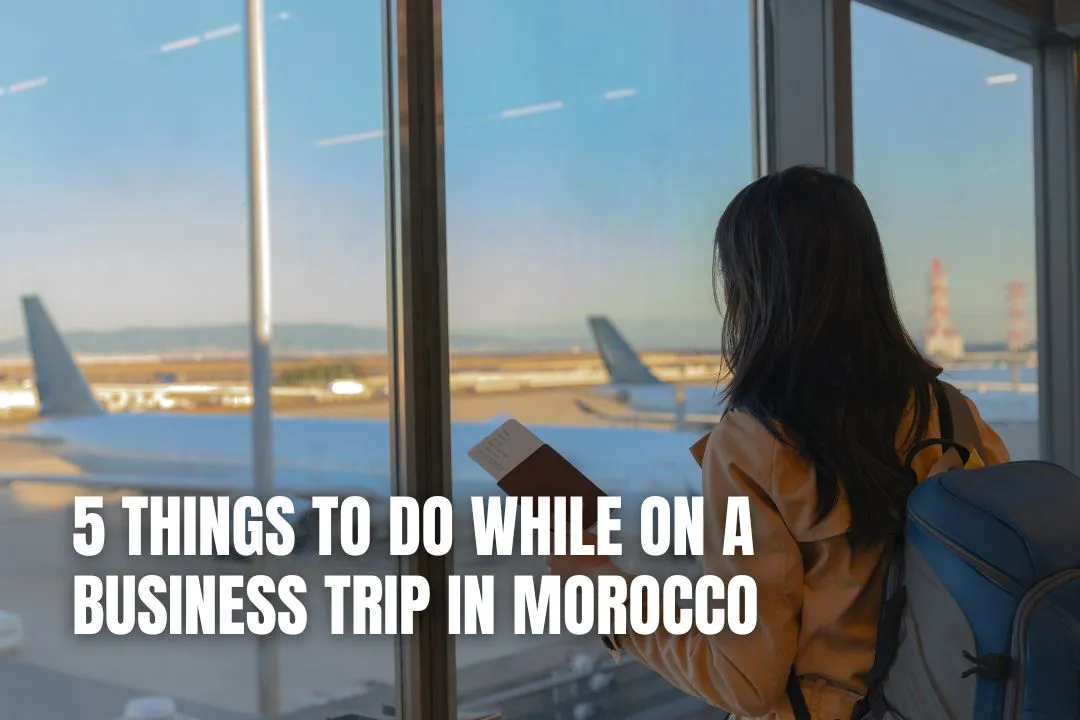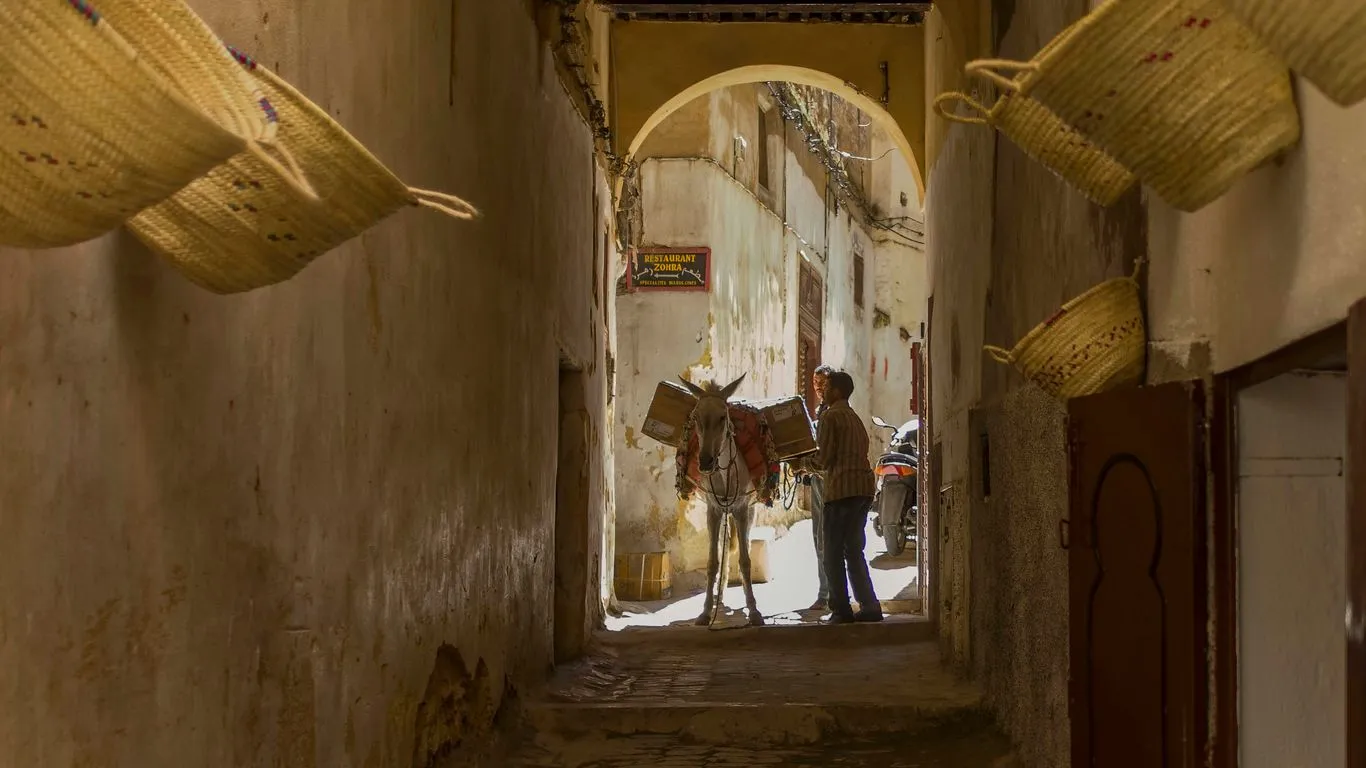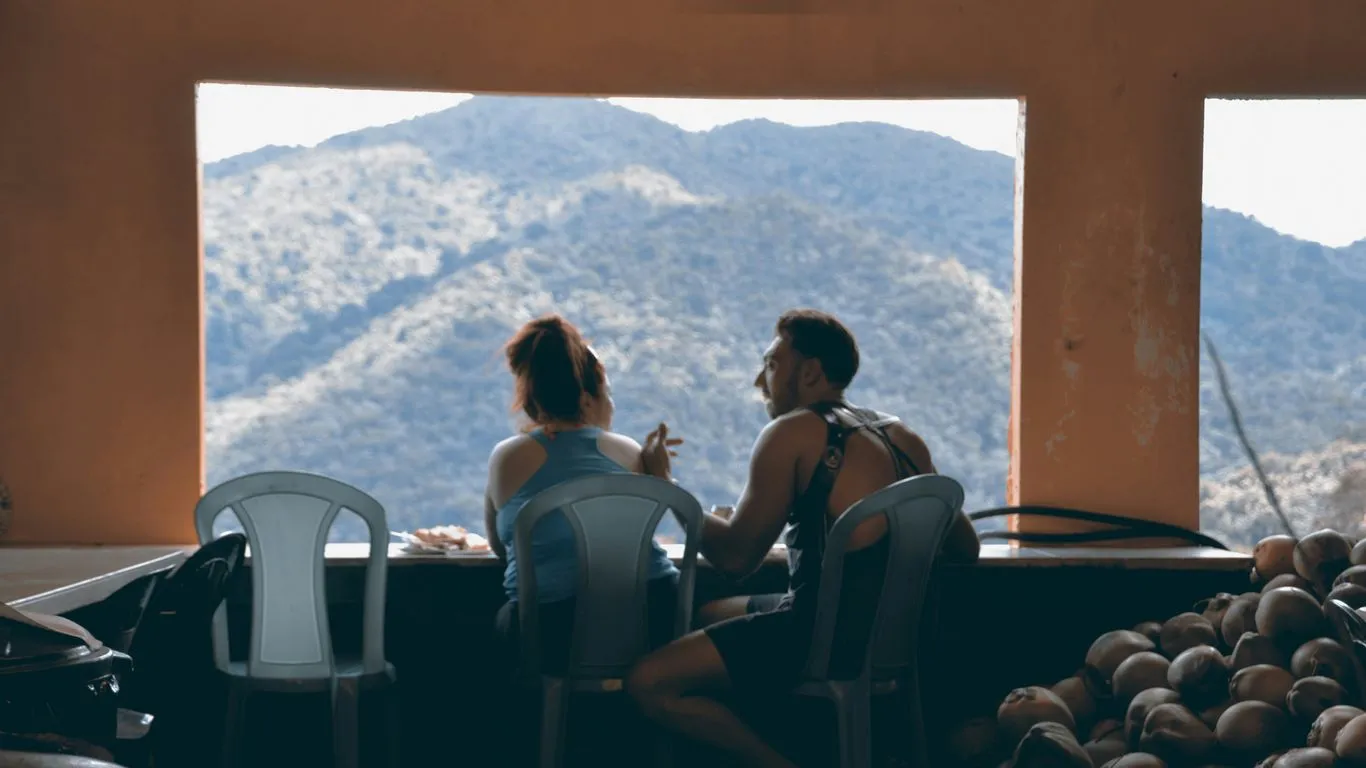
Editorial Disclaimer
This content is published for general information and editorial purposes only. It does not constitute financial, investment, or legal advice, nor should it be relied upon as such. Any mention of companies, platforms, or services does not imply endorsement or recommendation. We are not affiliated with, nor do we accept responsibility for, any third-party entities referenced. Financial markets and company circumstances can change rapidly. Readers should perform their own independent research and seek professional advice before making any financial or investment decisions.
Planning a business trip to Morocco? While you're there to get work done, it's a shame not to see a bit of what this amazing country has to offer. Morocco is a place where old traditions meet new ideas, and it's pretty easy to fit in some sightseeing between meetings. You might even find yourself thinking about Morocco Cycling Holidays after you've experienced its diverse landscapes and vibrant culture firsthand.
Even if you're only in Casablanca for a short business trip, you really should try to see the Hassan II Mosque. It’s quite something. Perched right on the edge of the Atlantic Ocean, this place is massive and incredibly detailed. It was finished in 1993, and it’s one of the few mosques in Morocco that welcomes non-Muslim visitors, which is pretty special.
You'll need to join a guided tour to go inside, and these run at specific times, so it’s worth checking the schedule beforehand. Remember to dress respectfully – shoulders and knees covered is the general rule, and women will need to cover their heads too. It’s a good idea to bring a scarf for this. The architecture is just stunning, with intricate carvings and beautiful tilework everywhere you look. Even if you don't go inside, seeing it from the outside, especially with the ocean waves crashing nearby, is a memorable experience.
Here’s what you need to know for a visit:
The sheer scale and the location right by the sea make it a truly impressive sight, a real landmark for the city.

Stepping into an old medina is like stepping back in time. These historic walled cities are the original hearts of many Moroccan towns and cities, and they're a fantastic place to get lost for a few hours. You'll find a maze of narrow, winding alleyways, often too small for cars, which means you'll be sharing the space with donkeys, carts, and lots of people going about their daily lives. It's a real sensory experience – the smells of spices and leather, the sounds of artisans at work and vendors calling out, and the sights of colourful textiles and intricate architecture. The medina offers a genuine glimpse into traditional Moroccan life.
When you're exploring, keep an eye out for:
It's worth remembering that medinas can be quite disorienting, so don't be afraid to embrace getting a little turned around. It's part of the adventure! If you're in Casablanca, the Habous quarter, sometimes called the 'New Medina', is a good place to start, offering a mix of traditional markets and newer architecture. You can find all sorts of trinkets and fabrics there at relatively fair prices.
Exploring the medina is more than just sightseeing; it's about immersing yourself in the rhythm of local life. Take your time, observe the details, and don't be shy about engaging with the friendly locals you meet along the way. A simple greeting can often lead to a memorable interaction.
Morocco's souks are a real treat for the senses, a place where you can find all sorts of handmade goods. It's easy to get a bit lost in the maze of stalls, but that's part of the fun. You'll find everything from colourful spices and intricately woven carpets to beautiful leather bags and traditional ceramics. Don't be afraid to haggle a little; it's expected and often leads to a friendly chat with the shopkeeper.
When you're exploring, keep an eye out for specific items that make great souvenirs:
Many artisans are happy to show you how they work, giving you a real appreciation for the skill involved. It’s a good idea to have a rough idea of what you're looking for, but also be open to discovering something unexpected. If you're new to the experience, consider hiring a local guide for your first visit to the markets; they can help you find the best spots and avoid any tourist traps. You can find some great deals on local crafts if you take your time.
Remember that shopping in the souk is more than just a transaction; it's a cultural exchange. Take the time to interact with the vendors, learn about their crafts, and enjoy the lively atmosphere. It’s a chance to connect with the local culture in a very tangible way.
Forget your standard hotel room for a bit and consider staying in a traditional riad. These places are usually old merchant houses, built around a central courtyard, and they really show off classic Moroccan architecture. It’s like getting a peek into how wealthier families lived ages ago. The courtyard design is pretty clever, offering a private, cool spot away from the busy streets outside. You’ll often find beautiful tilework and carved plaster inside, making the whole place feel really peaceful.
Many riads have been turned into small hotels, so you get that traditional look but with modern comforts. The rooftop terraces are a big plus, often giving you great views over the city rooftops. Plus, the personal service can be a real highlight. The staff usually know the area well and can give you tips on where to go or eat, which is super helpful. It’s a nice way to support local communities and help keep these old buildings looking good.
When you’re looking for a place to stay, think about what kind of experience you want. If you’re after something truly special and immersive, a riad is definitely worth looking into. It’s a different way to experience Morocco, and honestly, it makes the trip feel more memorable. You can find some really lovely ones if you do a bit of research, maybe even check out boutique hotels in Morocco for some ideas.

Morocco might not be the first place you think of for wine, but it actually has a surprisingly good wine industry, a legacy partly from French influence. It’s definitely worth exploring if you have some downtime. Many vineyards are located in areas with climates perfect for growing grapes, particularly around Meknes and along the Atlantic coast.
You can discover some really interesting local vintages that often surprise people. From crisp whites that go well with seafood to richer reds that complement a hearty tagine, there’s a good variety. Several wineries offer tours where you can see how the wine is made and learn how they adapt different grape types to the Moroccan conditions. It’s a nice way to see a different side of the country’s culture, showing how traditions can blend together.
If you're keen to try a vineyard tour, consider looking into options that include tastings and perhaps even a traditional lunch. It’s a great way to spend an afternoon and get a real taste of the local produce. You can find more information about these kinds of experiences, including vineyard tours with tastings, on this page.
Here are a few things to look out for:
Trying local wine offers a unique cultural insight, showcasing the diversity within Moroccan society and the coexistence of different traditions. It’s an unexpected but rewarding part of a business trip.
So, there you have it. Morocco offers so much more than just business meetings. Whether you're exploring bustling souks, enjoying a quiet moment on a rooftop terrace, or even trying some local wine, there's a good chance you'll find something unexpected to enjoy. It's a place that really stays with you. Hopefully, these ideas give you a good starting point for making the most of your time there, turning a work trip into a bit of an adventure. Safe travels!
Trains are a great choice for travelling between major cities like Casablanca and Marrakech, as they are comfortable and easy to book. For smaller towns or more remote areas, you might need to consider other forms of transport like buses or taxis.
A riad is a traditional Moroccan house built around a central courtyard or garden. Staying in one offers a peaceful and authentic experience, providing a calm escape from the busy streets with beautiful architecture and often, lovely rooftop views.
It is generally recommended to avoid drinking tap water in Morocco. To stay hydrated safely and reduce plastic waste, bringing a water filter bottle is a great idea, allowing you to purify tap water on the go.
As Morocco is a country with strong Islamic traditions, it's best to dress modestly. This typically means covering your shoulders and knees, particularly when visiting religious sites. Light, loose-fitting clothing is ideal for staying comfortable in the warm climate.
Yes, haggling is a standard and expected part of the shopping experience in Moroccan souks (markets). It's viewed as a friendly negotiation, so don't be shy. Start with a price lower than you're willing to pay and enjoy the interaction.
You should definitely try a tagine, which is a slow-cooked stew, and couscous. Pastilla, a sweet and savoury pie, is another local delicacy. And of course, you must experience Moroccan hospitality by sipping on some sweet mint tea.